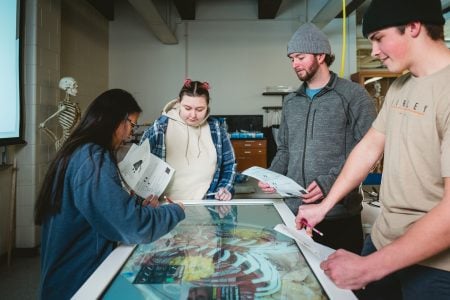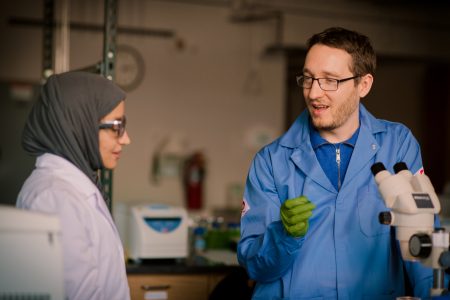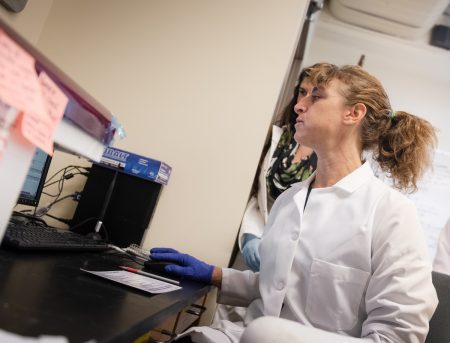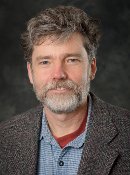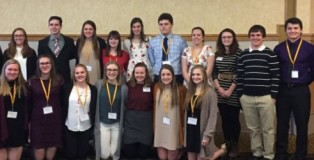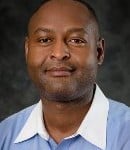Thanks to the generous support from our alumni and friends, the department purchased a virtual human cadaver dissection table from Anatomage. The table cost about $72,000. Our Anatomy and Physiology (A & P) students have been excited to use this equipment since the Fall of 2021. The table will move to our new H-STEM building when that project is complete (and be joined by a second table). This 7.2-foot-long iPad-like table allows eight students to simultaneously learn and experience medical sciences in a way they have never done before! We would greatly appreciate it if you could contribute to Anatomage Michigan Tech Fund #3454. Funds will go to purchase a second Anatomage table. As a result, this increases instruction for up to 16 students at the same time. We are already halfway there.
The Anatomage Table 8.0 is one of the most technologically advanced virtual dissection platforms. The Table’s interactive, life-sized display is now available for our undergraduate students to utilize within the Anatomy & Physiology Teaching Laboratory! It expands our ability to provide ultra-high-quality visualization for students to view photorealistic anatomical structures. Students are amazed by the level of detail within each virtual human cadaver. They see value in comparing models and textbook images to actual medical images. The Table includes a robust library of histology scans, CT and MRI scans, clinical cases, and physiology simulations.
This blog post initially appeared in the Fall 2022 Biological Sciences Newsletter. Read this article and others like it today.
